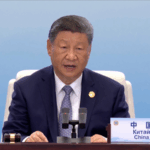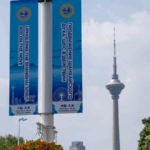Chinese President Xi Jinping unveiled the Global Governance Initiative (GGI) during the Shanghai Cooperation Organization (SCO) Plus Meeting in Tianjin on September 1, emphasizing sovereign equality, adherence to international law, and multilateral cooperation. The proposal aims to foster inclusive development and strengthen global governance frameworks amid rising geopolitical tensions.
In his keynote address, President Xi stressed a 'people-centered approach' to address global challenges, urging concrete actions to bridge development gaps. The initiative aligns with China's longstanding advocacy for a multipolar world order rooted in mutual respect among nations.
Meanwhile, Dr. Eyad Abu Mustafa, a lecturer at Gaza University, highlighted urgent concerns about compliance with international humanitarian law during a panel discussion on global governance. He accused Israeli military forces of 'blatant violations' in conflict zones, calling for stronger accountability mechanisms. "The international community must prioritize justice over political interests," he asserted, linking his remarks to broader debates about equitable enforcement of legal standards.
The juxtaposition of Xi's governance vision and Dr. Mustafa's critique underscores the complex interplay between policy frameworks and on-the-ground realities in Asia and beyond. Analysts suggest initiatives like the GGI could gain traction among developing nations seeking alternatives to traditional power structures.
Reference(s):
Gaza lecturer says Israel blatantly violating international law
cgtn.com








